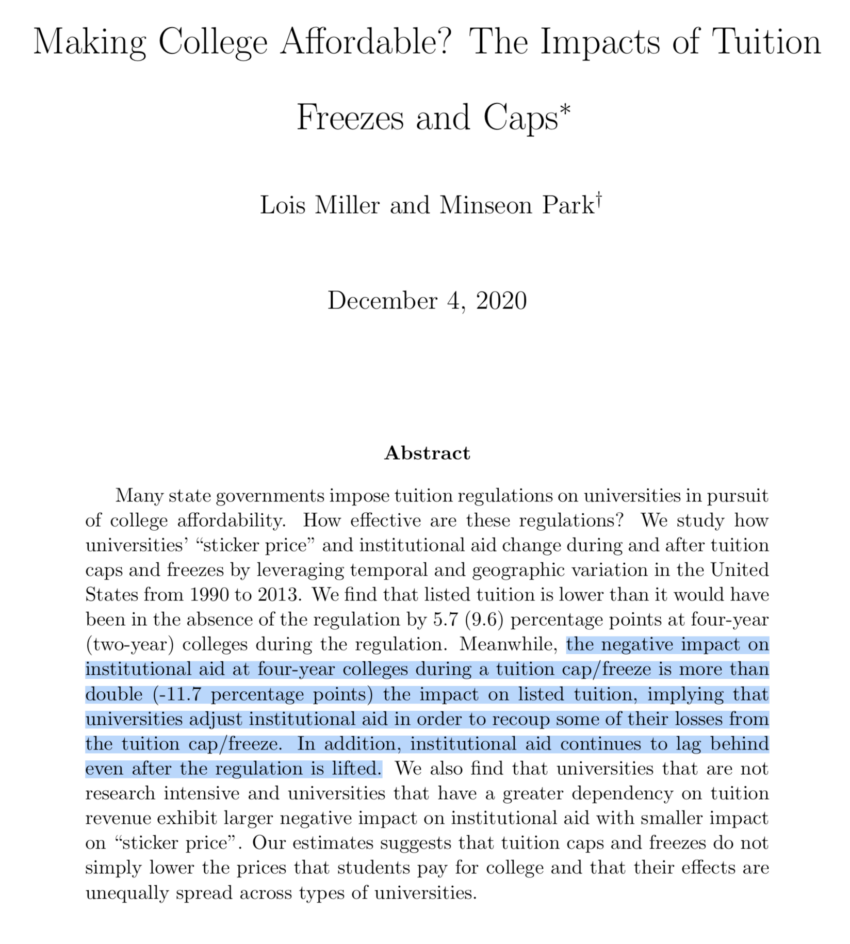Of course they lower the listed tuition price which is paid by higher income students, but it turns out they reduce the amount of needs-based support that universities provide low-income students by twice as much. I wonder how strong the inverse effect is – do increases in listed tuition lead universities to decrease the tuition cost for low income students? Thanks to a reader for the working paper here:

This is the trouble and the dirty little secret with “sticker prices” of higher education. High nominal tuition makes terrible publicity for higher education. But actual tuition rates for people who aren’t well to do are often massively discounted. The high nominal rates are actually a way for the rich to subsidize the poor. You really see this at places like Harvard and Princeton, where the nominal tuition is only paid by the very well-off — average middle class students who are lucky enough to go to those places actually get a very good deal. It might be better if some of the money high income people was actually in a form of a tax-deductible gift — with nominal tuition being much lower, and more in line with what the typical person pays.
That’s an interesting idea – sort of like the Varsity Blues scandal, but above board, and with the money going to academics instead of athletics.
I have always thought that tuition increases should scale the faculty up. But they never seem to do that
Silly dog, raises are for Johnson Hall.